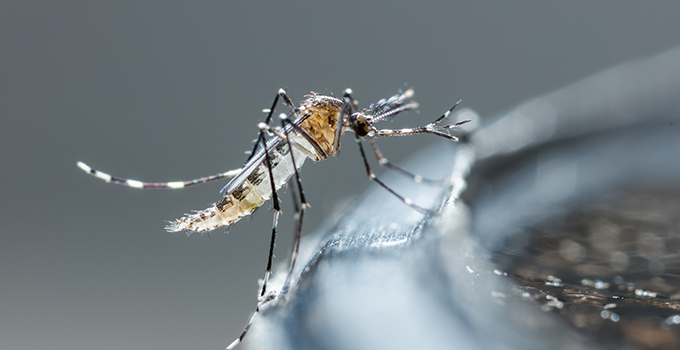Over the last year, the warm and wet El Niño weather pattern has caused a significant increase in mosquito populations. If the itchy bites aren’t bad enough, this problem has also led to a concerning rise in mosquito-borne diseases like Dengue fever; in fact, Latin America reported an astonishing 400% surge in Dengue fever cases compared to the previous five-year average.
With Dengue fever becoming more prevalent and frequently mentioned in the news, you might be wondering about your risk of contracting it here in Pennsylvania. Thankfully, the likelihood of getting Dengue fever in our area is relatively low. However, it’s crucial to be informed about what Dengue fever is, how it spreads, and the preventative measures you can take to protect yourself.
How Does Dengue Fever Spread?
Dengue fever is a viral infection that spreads through mosquito bites. After a mosquito bites somebody with the virus, they become carriers and are then capable of passing it along to anybody they feed on next. Preventing the spread of Dengue fever involves reducing mosquito breeding sites and minimizing exposure to mosquito bites, especially in tropical and subtropical areas where the disease is common.
Dengue Fever Symptoms
Dengue fever is primarily characterized by flu-like symptoms, though it’s also often called “breakbone fever” because it may trigger intense muscle or joint pain. In most cases, these common symptoms appear between 4 and 10 days after a mosquito bite:
- Skin rash
- Joint and muscle pain
- Pain behind the eyes
- Bleeding in the gums
- Easy bruising
- High fever
- Nausea
- Severe headache
Is Dengue Fever Common in Pennsylvania?
Like any other mosquito-borne illness, Dengue fever is a serious global concern—but, thankfully, it’s a lot less common in Pennsylvania. In fact, with how few cases there are in the United States, you’re probably more likely to win the lottery than contract the virus. However, with the rising number of global outbreaks, it’s wise to stay informed.
Recently, there have been a few isolated cases reported outside the usual hotspots, but these are unusual rather than widespread. To stay up-to-date and informed, it’s a good idea to monitor updates from trusted sources like the CDC.
How to Avoid Dengue Fever
Preventing dengue fever involves a combination of personal protection and environmental management to reduce mosquito exposure. Here are some effective strategies to help you avoid dengue fever:
1. Use Mosquito Repellents: Apply insect repellent containing DEET, picaridin, or oil of lemon eucalyptus on exposed skin and clothing. Reapply as directed, especially if you are sweating or after swimming.
2. Wear Protective Clothing: When in areas where mosquitoes are active, wear long-sleeved shirts, long pants, and socks. Clothing treated with permethrin can offer additional protection.
3. Use Mosquito Nets and Screens: Sleep under mosquito nets if you’re in an area with a high risk of dengue fever, and ensure that windows and doors are fitted with screens to keep mosquitoes out of your living spaces.
4. Eliminate Mosquito Breeding Sites: Mosquitoes lay eggs in stagnant water. Regularly empty and clean containers such as flower pots, birdbaths, and gutters to prevent them from becoming breeding sites. Cover water storage containers tightly and dispose of any unnecessary items that can collect rainwater.
5. Get Professional Pest Control: Experienced pest control professionals can assess your property for potential mosquito breeding sites, implement targeted treatments, and provide ongoing monitoring to significantly reduce your risk of a mosquito bite.
Is Dengue Fever a Concern in Pennsylvania Pest Control in Pennsylvania & New Jersey?
Serving Northeast & Central PA | Lehigh Valley | Pocono Mountains | Western NJ

